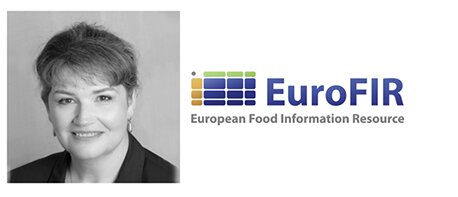Natasha’s Law – Critical Industry Update: six months to implementation
Supplied by Nutritics
In this industry round-up we:
- Look at what you should be doing and when, with just six months to go to the implementation of Natasha’s Law on 1 October.
- Share two recent posts on the UK Food Labelling Resource blog by experts Dr Siân Astley and Rachel Ward, highlighting the key challenges food operators face to ensure allergen management is fully integrated at all areas of the food production chain.
- List upcoming events on Natashas-Law.com for contract caterers and multisite operators in March and April as we prepare for the industry to recover.
Six-month countdown! Make the best of your time
With six months to go until 1 October and the implementation of Natasha’s Law, we share the top tips that Nutritics experts have been discussing with food businesses on our education webinars.
While many businesses are progressing well in their preparation, the next six months will bring added pressure as the sector starts to reopen after the extended closures during the pandemic.
Stephen Nolan, managing director of Nutritics, summarises the four key areas to be reviewed:
- Supplier arrangements: Audit all of your ingredients and products being delivered. What information do you receive from your suppliers, what format is it currently in and how can you ensure this information is accurately retained and transferred to labels? Talk to your suppliers about the options available.
- Stock and substitutions: Look at your recipes throughout the year. Do you have preferred substitutions or any seasonal variations for Easter, Christmas and other special occasions? Make sure any recipe adjustments can capture the ingredient and allergen information on labels for consumers.
- Staff education and training: Look at integrating allergen awareness training across your food production process. Ensure all staff are fully aware of the implications of Natasha’s Law, whether they are involved in ordering ingredients, managing software, producing PPDS food or selling to consumers.
- Software integration: This is an opportunity for food operators to look at the systems they currently have in place across the production process or to consider introducing a new system. As a rule, the more you can automate, the less exposed you are to risk of human error, such as inputting incorrect ingredients or allergens.
To be in good shape for 1 October, our advice is that steps one and two of this process above really need to be completed over the next three months, to the end of June.
The three months following that, from July to October, should be devoted to steps three and four, embedding the process of inputting ingredients to recipe formulation and generation of labels, and to staff training, ensuring each individual employee understands the details of the regulations and what their responsibilities are to ensure compliance.
Further detail on the key stages is in our downloadable guide.
Challenges to be addressed
Recently, we spoke to two experts who advise the food industry on best practice in food information standards and regulations.

Our first interview was with Dr Siân Astley, senior research and communications manager at EuroFIR. Based in Brussels, EuroFIR was set up in 2009 with the purpose of developing, publishing and sharing food composition information and promoting international co-operation and harmonisation of standards.
We also spoke to Rachel Ward, scientific policy director at the Institute of Food Science & Technology. The IFST is an internationally respected independent professional body, supporting food technical professionals through communities of practice, knowledge sharing and professional recognition.

Both experts stressed the need for the food industry to work together to ensure accurate information is being shared at all stages of the food chain. The challenges they identified in this as were changes in formulations, the ever-increasing globalisation of the food chain and the existence of different allergens in different countries.
"We need to ensure that companies all work together to ensure that food lines are safe and the information being provided to the next stage of the chain and ultimately to the consumer is accurate," said Dr Astley.
We need to ensure that companies all work together to ensure that food lines are safe and the information being provided to the next stage of the chain and ultimately to the consumer is accurate
Our interviewees also stressed the importance of focusing on staff education, citing high levels of confusion around the difference between an allergy, a food intolerance or food preference. “Every food business and operation needs to revisit their allergen training for their entire staff, right up to the chief executive, to understand the significance of food allergens," said Ward.
Every food business and operation needs to revisit their allergen training for their entire staff, right up to the chief executive, to understand the significance of food allergens
Rachel Ward flagged that the last 12 months have seen unprecedented change for food operators, from regulatory change, supply chain change and operational model change and also emphasised strongly that allergen management should be approached in the same way as food safety and hygiene management.
“This comes down to good manufacturing practice, good hygiene practice and risk management systems," explained Ward. "What companies need to make sure now is that they are prepared to collect the necessary information from suppliers and pass it on to consumers in a way that accurately describes the product and its risk."
What companies need to make sure now is that they are prepared to collect the necessary information from suppliers and pass it on to consumers in a way that accurately describes the product and its risk
You can read the full interviews on our website.
Upcoming events for your calendar
31 March: The Caterer's Allergen Webinar, sponsored by Nutritics
Special guests include: Rachel Ward, scientific policy director at IFST; James Stagg, editor of The Caterer; Amy Roberts, managing director of operations of Holroyd Howe; and Stephen Nolan, managing director of Nutritics. Register here.
Tuesday 20 April: Software-specific seminar
This free, live webinar, ‘Is Your Software Compliant for Natasha’s Law?’, will help businesses across the board to understand all the essential checks needed to make sure their allergen and food labelling software is fully compliant.
This software webinar, hosted by Nutritics, is ideal for businesses looking for fast-track compliance with clear pricing guidelines and easy-to-roll-out processes.
It will cover things like:
- What changes will I need to make to my current setup?
- What tests can I do to my current system to ensure compliance?
- What is the most cost-effective solution for a business of my size?
- How long will it take me to get ready?
This event is free and live – to facilitate practical Q&A with industry experts – so it will not be available to watch back.



















